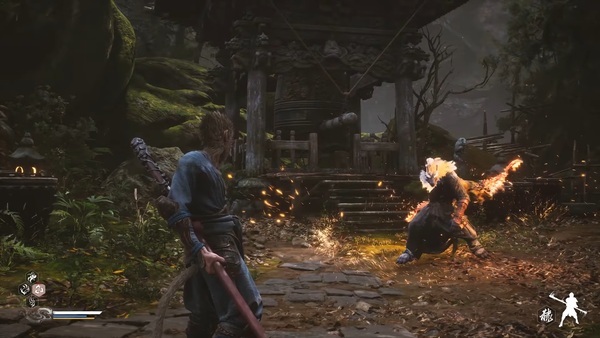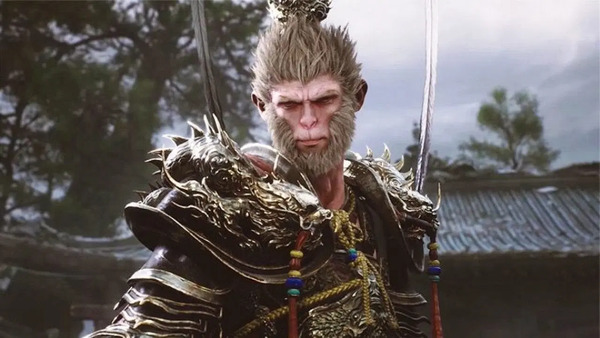Advertisement
Popular Now
Introduction
"Black Myth: Wukong" is an eagerly anticipated action RPG developed by Game Science, drawing inspiration from the classic Chinese novel "Journey to the West." Known for its stunning visuals, intricate gameplay mechanics, and deep lore, the game has captured significant attention from both fans and critics. One of the most discussed aspects of "Black Myth: Wukong" is its approach to difficulty scaling, particularly how AI-driven systems affect player experience. This article will explore the specific issue of AI-driven difficulty scaling in "Black Myth: Wukong," examining its implementation, impact on gameplay, and potential solutions to ensure a balanced and engaging experience for all players.
The Concept of AI-Driven Difficulty Scaling
Understanding AI-Driven Difficulty Scaling
AI-driven difficulty scaling is a dynamic approach where the game adjusts its difficulty based on the player's performance and behavior. In "Black Myth: Wukong," this means the game's AI algorithms monitor various metrics, such as player skill, progression speed, and in-game decisions, to adjust enemy difficulty and challenge levels in real-time. The goal is to provide a balanced and engaging experience that adapts to each player’s skill level.Implementation in "Black Myth: Wukong"
In "Black Myth: Wukong," the AI-driven difficulty scaling is designed to enhance the game’s challenge while keeping it accessible. The system analyzes data from player interactions, such as combat performance and exploration efficiency, to dynamically adjust the game's difficulty. This approach aims to keep the gameplay engaging by preventing players from becoming either overwhelmed or bored.Early Reactions to Difficulty Scaling
Initial Feedback from Early Access
During the early access phase of "Black Myth: Wukong," players began providing feedback on the AI-driven difficulty scaling. Many praised the system for its innovative approach, noting how it seemed to adapt to their play style and keep the game challenging. However, some players also reported issues with the scaling, such as sudden spikes in difficulty that felt inconsistent or unfair.Developer Responses to Player Feedback
In response to early feedback, the developers at Game Science acknowledged the mixed reactions to the difficulty scaling system. They implemented several adjustments and improvements based on player input, aiming to fine-tune the AI algorithms and ensure a smoother and more consistent experience. These adjustments included refining the difficulty adjustment thresholds and improving the responsiveness of the AI.Impact on Gameplay Experience
Positive Aspects of AI-Driven Scaling
When functioning well, AI-driven difficulty scaling can enhance the gameplay experience by providing a personalized challenge. Players who excel at certain aspects of the game may find the increased difficulty stimulating, while those who struggle can benefit from a more manageable challenge. This system can also help maintain player engagement by offering a sense of progression and accomplishment.Negative Experiences and Frustrations
Despite its potential benefits, the AI-driven difficulty scaling in "Black Myth: Wukong" has led to some negative experiences. Players have reported instances where the difficulty adjustments felt erratic, such as enemy behavior becoming overly aggressive without clear reason. This inconsistency can disrupt the flow of the game and create frustration, especially in challenging boss battles or complex sections of the game.Balancing AI Difficulty Adjustments
Challenges of Balancing AI Systems
 Balancing an AI-driven difficulty scaling system is inherently challenging. Developers must ensure that the system adapts appropriately to different player skill levels while avoiding extremes that could lead to frustration or boredom. Achieving this balance requires extensive testing and iteration, as well as a deep understanding of player behavior and game dynamics.
Balancing an AI-driven difficulty scaling system is inherently challenging. Developers must ensure that the system adapts appropriately to different player skill levels while avoiding extremes that could lead to frustration or boredom. Achieving this balance requires extensive testing and iteration, as well as a deep understanding of player behavior and game dynamics.
Strategies for Effective Balancing
To address balancing challenges, developers use various strategies. These include:- Data Analysis: Collecting and analyzing gameplay data to identify patterns and adjust difficulty thresholds.
- Player Feedback: Incorporating feedback from a diverse player base to understand different perspectives on difficulty.
- Iterative Testing: Continuously testing and refining difficulty adjustments to ensure consistency and fairness.
Comparing AI-Driven Scaling with Traditional Methods
Traditional Difficulty Scaling Approaches
Traditionally, difficulty scaling in games was managed through predefined difficulty levels, such as Easy, Medium, and Hard. These settings provided a static challenge that did not adapt to the player's performance. While this approach is straightforward, it lacks the dynamic element that AI-driven systems offer.Advantages of AI-Driven Scaling
AI-driven scaling offers several advantages over traditional methods:- Personalization: Adapts to individual player skill and play style, providing a tailored experience.
- Dynamic Challenge: Adjusts in real-time, preventing gameplay from becoming too easy or too difficult.
- Enhanced Engagement: Keeps players engaged by maintaining an appropriate level of challenge.
Technical Implementation of AI Difficulty Scaling
Algorithm Design and Functionality
The technical implementation of AI-driven difficulty scaling involves complex algorithms that analyze player data and adjust game parameters accordingly. These algorithms must account for various factors, such as combat performance, exploration efficiency, and decision-making processes. The design of these algorithms requires careful consideration of how changes in difficulty will affect gameplay.Potential Technical Issues
Technical issues can arise in AI-driven difficulty scaling, including:- Latency: Delays in difficulty adjustments can lead to inconsistencies in gameplay.
- Overfitting: Algorithms may become too finely tuned to specific player behaviors, leading to imbalanced experiences.
- Complexity: The complexity of AI systems can lead to unforeseen bugs or unintended consequences in difficulty adjustments.
Future Directions for Improvement
Planned Updates and Enhancements
Game Science has outlined several plans for improving the AI-driven difficulty scaling in "Black Myth: Wukong." Future updates will focus on refining the AI algorithms, improving data analysis techniques, and incorporating more player feedback. These enhancements aim to address current issues and provide a more balanced and enjoyable experience.Long-Term Goals for Difficulty Scaling
For long-term success, the developers will need to:- Enhance AI Capabilities: Continuously improve the sophistication of AI algorithms to better handle diverse player behaviors.
- Expand Testing: Increase the scope of testing to cover a broader range of play styles and scenarios.
- Engage with the Community: Maintain open communication with the player base to gather ongoing feedback and make necessary adjustments.
The Role of Player Feedback in Refining Difficulty
Importance of Community Input
 Player feedback is crucial in refining difficulty scaling systems. By engaging with the community, developers can gain insights into how difficulty adjustments impact gameplay and identify areas for improvement. Community feedback helps ensure that changes are aligned with player expectations and contribute to a more balanced experience.
Player feedback is crucial in refining difficulty scaling systems. By engaging with the community, developers can gain insights into how difficulty adjustments impact gameplay and identify areas for improvement. Community feedback helps ensure that changes are aligned with player expectations and contribute to a more balanced experience.
Mechanisms for Collecting Feedback
Effective mechanisms for collecting feedback include:- Surveys: Regular surveys to gather player opinions on difficulty scaling and related issues.
- Forums and Social Media: Monitoring forums and social media platforms for discussions and feedback.
- In-Game Feedback Tools: Implementing tools that allow players to provide real-time feedback on difficulty adjustments.
















